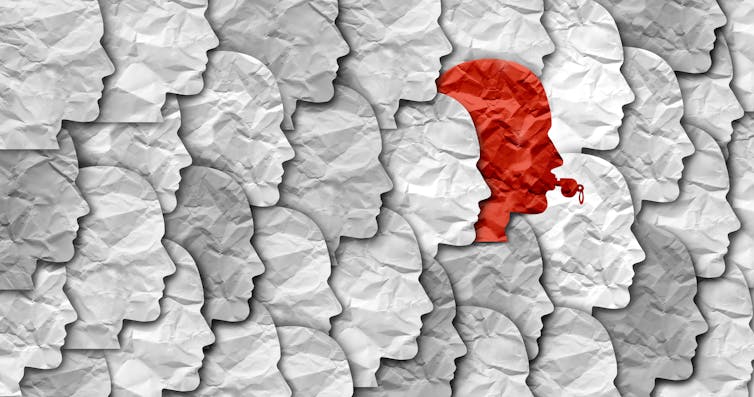
Isaac Nahon-Serfaty, L’Université d’Ottawa/University of Ottawa
Venezuelan philosopher, Antonio Pasquali, who wrote extensively about how media and society affected each other, passed away on Oct. 5, 2019, in Spain.
In 1984, Pasquali was appointed Deputy Director General of the Communications Sector of UNESCO and Regional Coordinator for Latin America and the Caribbean of UNESCO from 1986-89. He played an important role in UNESCO’s New World Information and Communication discussions.
Pasquali’s contributions to media studies are well-known in Latin America, but his research is less known in the English-speaking world. His research on media and communication inspired many Latin American scholars and media practitioners — including myself — who place ethics at the centre of the discussion.
Pasquali was a fierce critic of Canadian media theorist Marshall McLuhan’s view that “the medium is the message” — that the medium in which things are disseminated determines their meaning. Always returning to human communication as the basis of relationships between people, Pasquali warned us about the necessary conceptual and practical difference between communication and media.
For Pasquali, the ability to communicate is inherent to the formation of society. And so, any modification or control of communications becomes to a modification or control of society itself. He argued that technological changes, with their benefits and disruptions, have yet to transform the essence of human communication.
Pasquali’s work is important to consider because he warned us about some troubling challenges that we can see around us.
Six trends that will change communication
Pasquali wrote about the ethics of communication, or what he called “the moral dimension of communication.” In his book 18 essays about communications, he identified “six hard trends” that would mark humanity’s future:
1) A process of human-made environmental degradation that approaches the point of no return, as in the impending ecological crisis brought about by climate change and its consequences;
Read more: Dealing with the absurdity of human existence in the face of converging catastrophes
2) Human interference in natural evolutionary processes. He warned that advances in genetic engineering that bring hope for the treatment of diseases and also open the door to sophisticated mechanisms of social engineering and control;
3) Challenging the very idea of what being human is by: a) machines combined with living beings (cyborgs), and b) by the shift of human decision-making to artificial intelligence that could make humans irrelevant and even disposable. This will require new ways of understanding the relations between digital machines and human;
4) The persistence of nuclear, bacteriological, chemical and terrorist dangers, in a context of political polarization coupled with the emergence of extremist ideologies that could lead to internal and external violent confrontations;
5) The consolidation of the disparity between rich and poor that is already generating social unrest in different regions, as we have seen recently in Latin America and the Middle East;
6) The transformation of democracy into a plutocratic dictatorship (the government by the wealthy) based on the technological manipulation of social consensus, as illustrated in the Cambridge Analytica/Facebook scandal.
The importance of public media
Pasquali was persistent in his struggle to establish a public broadcasting service in Latin American countries. His passion in defence of the need for a public media service never declined, and seems to be more relevant than ever in the midst of the Internet explosion.
Pasquali observed that the internet is now largely controlled by monopolies such as Facebook, Google, Amazon and Apple, and manipulated by big emerging powers like China. He vehemently denounced the “communication hegemony” of the authoritarian government of Hugo Chávez and his successor Nicolás Maduro. Pasquali documented the setbacks that the regime has inflicted on Venezuelan society from the point of view of telecommunications, the media and transportation infrastructure.
Renouncing communication?
At the end of his essay “Will we communicate or inform ourselves?,” Pasquali wondered if we are ready to give up a fundamental condition for our existence — the ability and experience of communication. For him, communication was a mixture of intellect, passions and will that was intrinsic to how people made meaning, personally and socially. He asked: “Are we going to give up without a fight the possibility of communicating to another human being that we love him/her?”
The great body of work that Pasquali produced will help us to answer these fundamental questions about the future of communication. Pasquali’s intellectual legacy will live on through his writings and teachings.
Isaac Nahon-Serfaty, Associate Professor, L’Université d’Ottawa/University of Ottawa
This article is republished from The Conversation under a Creative Commons license. Read the original article.

